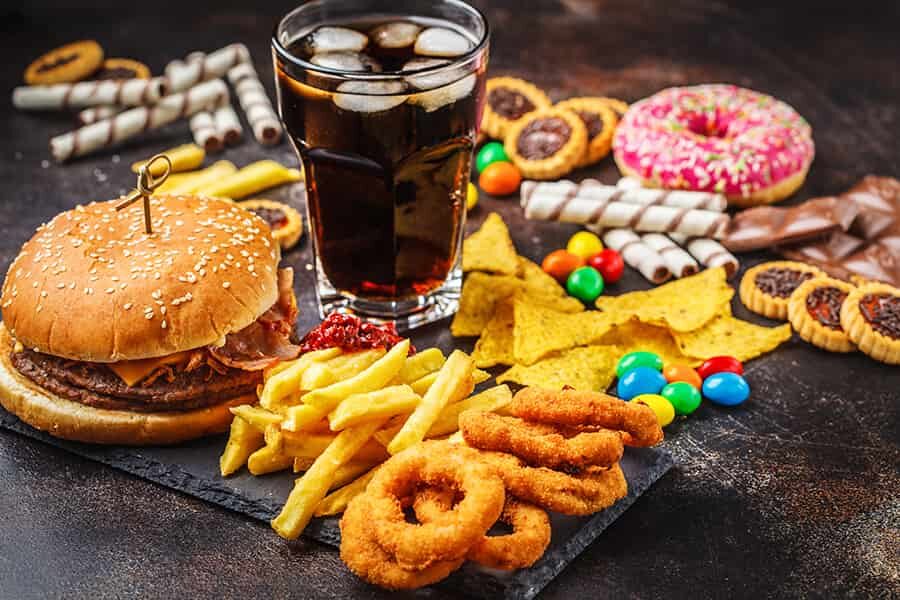Read time : 2 minutes

Every October, as conversations about breast cancer awareness blaze through our timelines—pink ribbons, heartfelt survivor stories, and essential screenings—there’s a crucial dialogue we often overlook. We must remember it. It’s the profound impact of our daily food choices on prevention and overall breast health that deserves our fervent attention!
While there’s no “MAGIC” or “SUPER” food that can wipe out cancer risk entirely, the truth remains undeniable: our constant dietary decisions are powerful! Research relentlessly highlights how what we consume profoundly influences our bodies’ responses to inflammation, hormone balance, and cell growth—each intricately intertwined with breast cancer risk. Let’s empower ourselves through knowledge and make choices that can foster health and resilience!
Avoid To Reduce Breast Cancer Risk
- Alcohol
Alcohol might feel harmless in moderation. However, studies confirm that even small amounts of alcohol can increase breast cancer risk. Large reviews from the World Health Organization (WHO) and the American Cancer Society (ACS) support this finding. This includes wine, beer, or liquor.
Alcohol can raise estrogen levels. It can also damage DNA in cells. Both of these effects can trigger the development of hormone-sensitive cancers like breast cancer.
It is recommended limiting alcohol to no more than one drink a day, and for some, even less.
- Processed Meats
Hot dogs, sausages, bacon. These may taste good. However, the preservatives and nitrates used in processed meats can generate carcinogenic compounds when cooked at high temperatures.
According to research from the International Agency for Research on Cancer (IARC), processed meats are classified as Group 1 carcinogens. This is in the same category as tobacco, though not equally risky.
If you enjoy meat, try replacing processed options with fresh, lean poultry or plant-based protein sources like beans, lentils, or tofu.
- Red Meat: Moderation, Not Elimination
Red meat, especially beef, lamb, and pork, isn’t off-limits. However, frequent consumption has been linked to a higher risk of breast and colon cancers.
Studies from Harvard’s T.H. Chan School of Public Health suggest that reducing red meat intake and replacing it with fish, poultry, or legumes may lower overall cancer risk. The key is moderation, limit to 1–2 servings per week and focus on healthier cooking methods like grilling, baking, or stewing instead of frying or charring.
- High-Fat Processed Foods and Sugary Snacks
Doughnuts, fries, pastries, and many packaged snacks often contain trans fats, which promote inflammation and insulin resistance, two processes linked with cancer development.
The journal Nutrients in 2019, found that women with diets high in trans fats and added sugars had higher markers of inflammation and a greater likelihood of hormone imbalance.
Instead, aim for healthy fats like olive oil, avocados, and nuts, these help support hormonal balance and heart health.
- Highly Processed and Refined Carbohydrates
White bread, sugary drinks, and sweetened cereals cause sharp spikes in blood sugar and insulin levels. Over time, this can promote inflammation and hormonal disruptions that may increase cancer risk.
A better choice is choosing whole grains like oats, millet, or brown rice, these help stabilize blood sugar and support long-term energy without overloading your system.
What You Must Know About Food and Breast Cancer Risk.
No single food will cause or prevent breast cancer, but your overall pattern of eating matters. Reducing alcohol, limiting processed meats, and cutting back on sugary, fatty foods doesn’t mean losing joy in eating, it means gaining control over your health.
As the American Institute for Cancer Research (AICR) puts it: “The best defense is a plate filled mostly with plants. A lifestyle rich in movement, rest, and moderation is also important.”
Meet Your Ai Personal Trainer
👉Personalized workouts. Progress tracking. Real results.
MyHealthCop AI is your pocket trainer — always ready, always smart.
Download the App to Take your free Ai health assessment Today [Take Assessment]
RD, LD Julius Sammah
MyHealthCop Certified Dietician